Basics of Moving a Lawn Mower With Ease
When it comes to the essentials of ensuring your garden equipment is relocated safely, understanding the process is key to reducing relocation stress.
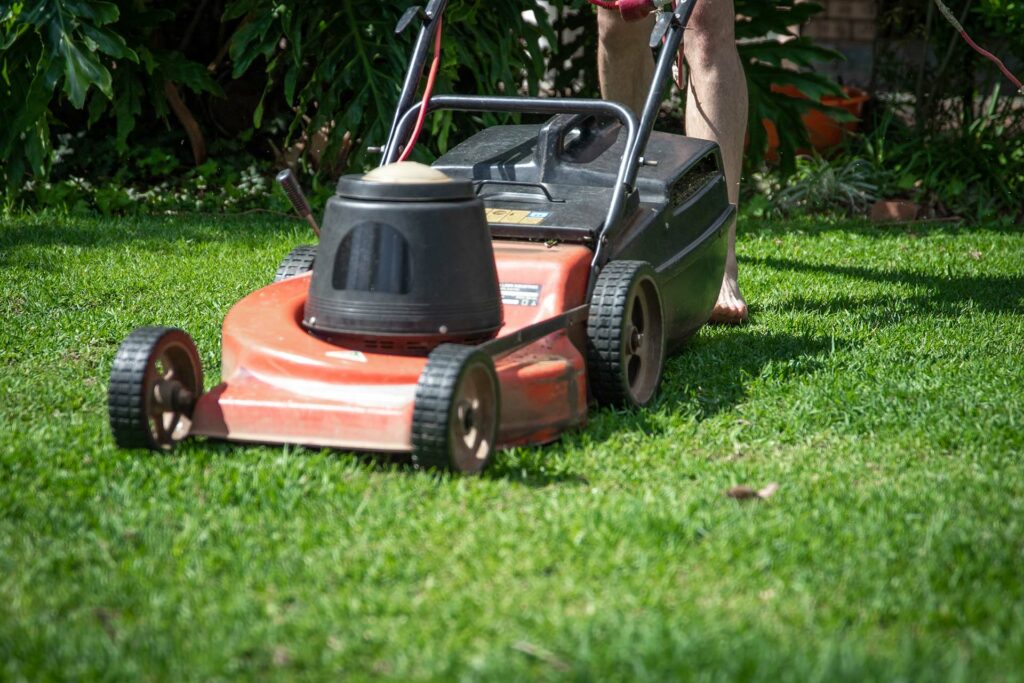

Relocating to a new home often involves moving a variety of items, but few are as tricky as moving a lawn mower. Ensuring it reaches your new abode safely requires careful planning and the right approach. We’ll share essential tips and tricks to make this process seamless and stress-free. One key solution is employing white glove movers, who specialize in handling such equipment with utmost care and precision.
When it comes to the essentials of ensuring your garden equipment is relocated safely, understanding the process is key to reducing relocation stress.
It begins with thorough preparation, involving a careful examination of the machinery to secure any loose parts and draining all fluids to prevent leaks during transit.
Ensuring the blades are safely covered and immobilized is crucial to avoid any damage. Selecting the appropriate transportation method, whether it be a trailer or a movers’ truck with sufficient space, is also vital.
Address these foundational steps, and the journey of the grass-cutting equipment to its new destination can be conducted with confidence and peace of mind.
In the context of things to do before relocating grass-cutting equipment, a thorough assessment of its condition is paramount. This step is crucial in your relocation to-do list. Begin by inspecting for any damages or wear that may need repairs, paying close attention to blades, handles, and wheels.
Understanding the specific type of equipment you own — whether it’s manual, electric, or gas-powered — is also essential. For electric models, check the battery and electrical connections, while gas-powered versions require a fuel level and line inspection. This detailed evaluation not only helps in securing the mower but also guarantees its readiness for immediate use upon arrival at the new location.
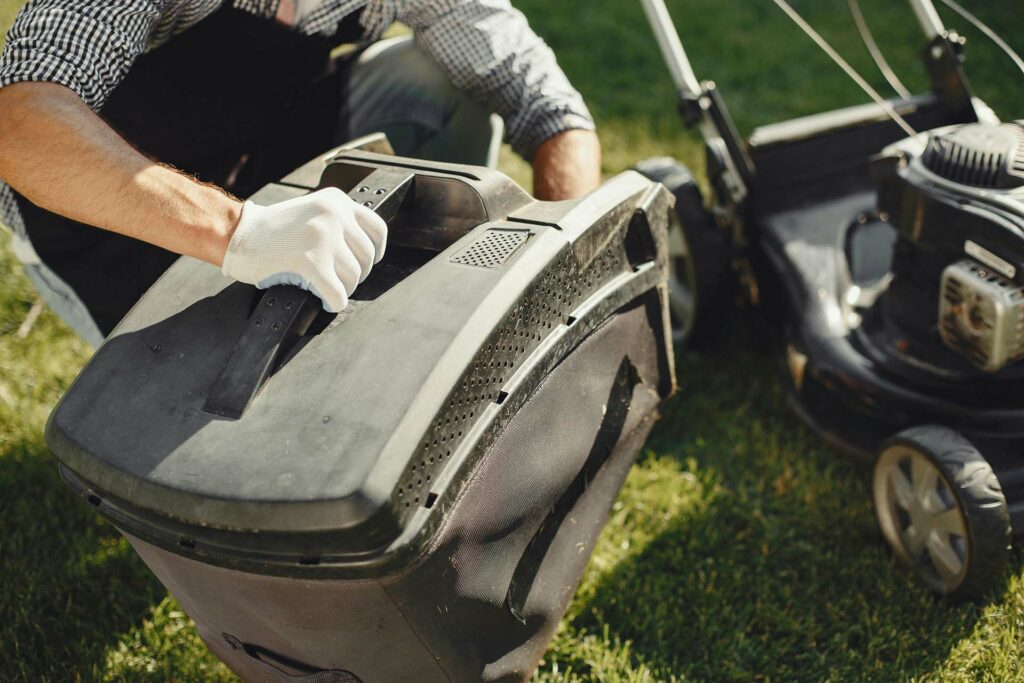
Preparing garden equipment for relocation involves a meticulous process, essential to avoid common relocation mistakes and ensure it’s ready for long-distance movers. Start by thoroughly cleaning the mower to remove any grass, dirt, or debris.
The next crucial step is draining all fluids, such as oil and gasoline, to prevent leaks and spills during transit. This is not just a safety measure but also a requirement by most transport companies, such as Long Distance Movers.
After this, ensure all loose parts are securely fastened or removed and packed separately. These steps include tightening screws, securing the cutting blade, and folding down handles if possible. Taking the time to carefully prepare the mower will safeguard it during transport and ensure it arrives in the same condition it left.
Don’t forget that safety precautions are paramount, especially when the mower gets packed in a relocation truck amidst the last-minute relocation rush. First and foremost, disconnect the spark plug to prevent accidental starting. This step is critical, especially in gas-powered models. For electric mowers, remove the battery or ensure it is completely disconnected.
Always wear protective gloves to safeguard against sharp edges, particularly when handling the blades. An example of a practical safety tip is to use sturdy tape or a blade guard to secure the cutting blade. Such precautions not only protect the equipment but also ensure the safety of everyone involved in the relocation process.

When considering packing tips for outdoor tools, the approach must be efficient. If you decide to pack the equipment yourself, it should be done meticulously to avoid damage during transit. Wrap exposed parts like blades in bubble wrap and secure them with tape. It’s also advisable to use sturdy, appropriately-sized boxes to encase the smaller, detached parts, ensuring they’re well-padded to avoid movement.
However, if packing seems too difficult or if you’re unsure how to pack efficiently, it’s often best to leave the mower as is. Many professional relocation companies have the expertise to handle such items, ensuring they’re properly protected, whether it’s for a long-distance relocation or to keep the item in a storage unit. Allowing the movers to manage the packaging process can often be the most stress-free option.
Even though you are aware of the easiest way to pack a mower for moving to another state, there are still things that are important for this task to go well. It all starts with quality packaging materials. Firstly, sturdy cardboard boxes of various sizes are needed to accommodate different parts.
Bubble wrap is crucial for wrapping sharp edges and delicate components, providing cushioning against impacts. Packing peanuts or foam can be used to fill empty spaces in boxes, ensuring parts don’t shift during transit.
Strong packing tape is required to securely seal the boxes and bubble wrap. In case you decide to dismantle any parts, ziplock bags can be useful for keeping small pieces like nuts and bolts organized and labeled. Check out the Craigslist website for free and affordable packaging materials.
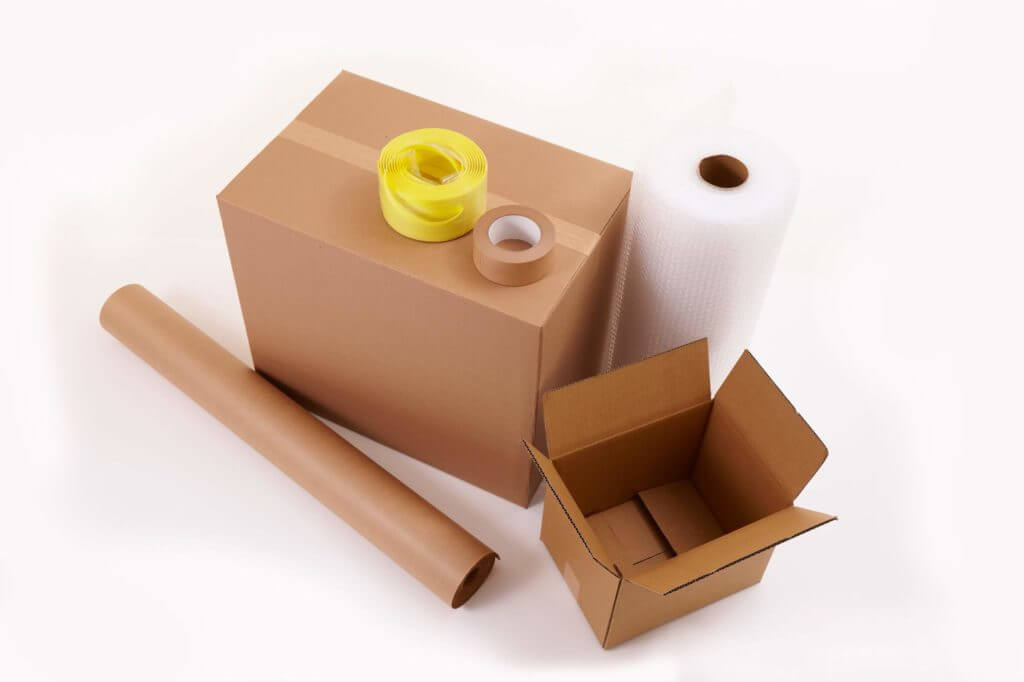
When you choose a relocation company for moving heavy outdoor equipment, it’s vital to ensure that the company is not only equipped to handle your specific needs but also that it is legitimate and reliable. Shortlist companies specializing in white glove moving services, as they are typically well-versed in handling such equipment with care.
It’s important to check whether the company is legitimate by verifying its licensing and insurance information. Look for reviews and testimonials from previous clients to gauge their reliability and quality of white glove moving service.
Additionally, inquire about their experience in moving heavy outdoor equipment, and whether they provide specialized services such as dismantling, packing, and reassembling. Choosing the right company involves thorough research and verification, but it’s a crucial step in ensuring a smooth and worry-free relocation of the lawn equipment.
Don’t underestimate the help of capable long-distance movers. Thinking that it’s best to do everything yourself could be a wrong decision. Remember that hiring white glove movers for secure lawn equipment transport comes with benefits that might not immediately come to mind:
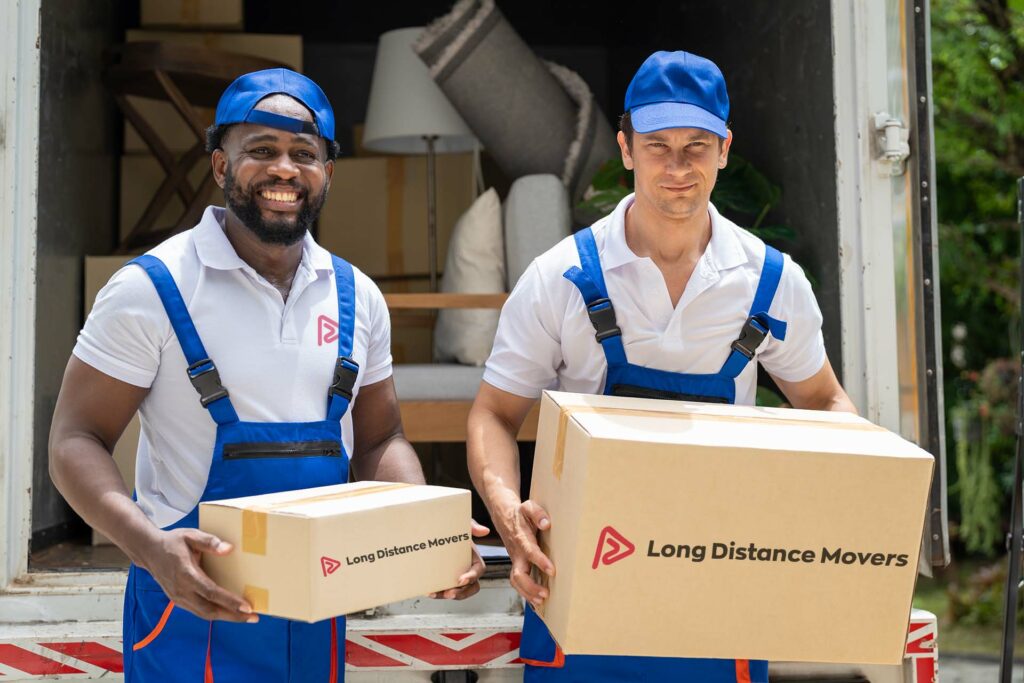
Moving day is a culmination of all your preparation efforts, ensuring a safe mower relocation. A moving day preparation checklist is crucial to keep everything on track. Start with final checks, ensuring the machine is cleaned, fluids are drained, and parts are securely fastened or removed.
Be present when the movers arrive to discuss the loading techniques and the order in which items will be loaded into the truck. This is particularly important for heavier items, as they need to be placed in a position that ensures stability and minimizes movement during transit. Keep an inventory list handy to check off items as they’re unpacked.
Effective communication and coordination with professional movers are key to successful garden equipment transportation. Clearly communicate important information and specific instructions regarding your lawn equipment. Start by providing a brief overview of your items, highlighting any that require special attention. Discuss the plan for the day, including the order of packing and loading, and any preferences you have for the arrangement of items in the relocation truck.
Point out any pre-existing damage to the items, so there’s a mutual understanding of their condition. Be available to answer any questions they may have and also ask for updates or information as needed. Remember, the movers are there to assist, so maintaining a polite and cooperative atmosphere will go a long way in ensuring a smooth and efficient relocation process.
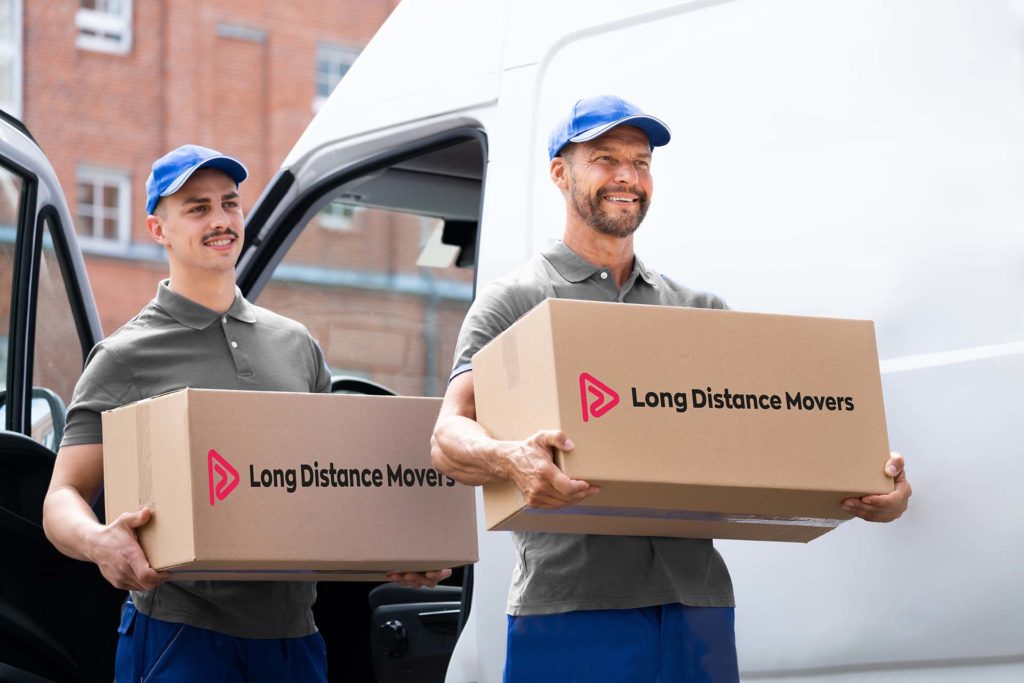
Once you’ve relocated, one of the primary things to do after moving is to set up your lawn mower at the new residence. Begin by safely unloading it from the moving truck, ideally with the help of the movers to avoid any strain or injury. Carefully remove any protective wrapping and check if all parts are accounted for.
Reassembling should be done according to the manufacturer’s instructions. If you had removed the spark plug or battery before the move, now is the time to reconnect them. Ensure that all nuts and bolts are tightened and that the mower is in stable, working condition. If it’s a gas-powered model, refill the fuel tank. Once reassembled, give it a test run in a small area.
Treat yourself with a white glove long distance moving service that’s based on the inventory list and not weight. This means a price guarantee, transparent move costs and premium moving service.
Learn more Learn moreMove your car across the country in an open or enclosed trailer – for an affordable fee. We offer car transport as a standalone service, but you can bundle it with your household move and get a hefty discount.
Learn more Learn moreConduct a thorough inspection before its first use in the new home. Check for any signs of damage that might have occurred during the move. Look for loose components, misalignments, or any other irregularities. After transporting gas-powered mowers, inspect the fuel lines and connections for leaks.
For electric mowers, check the battery and electrical connections. Conduct necessary maintenance such as oiling moving parts or sharpening the blades if needed. As for storage advice, choose a dry, sheltered area like a garage or shed to protect it from the elements. Ensure it’s placed in an accessible yet out-of-the-way spot to prevent any accidental trips or falls.

Assessing your mower’s condition, preparing it for transport, selecting appropriate packaging, and understanding the importance of professional movers are all critical steps for a smooth transition. On the day of the move, coordination and preparation are key, and once you arrive at the new home, setting up and ensuring it’s ready for use demands careful attention. However, managing all these aspects can be overwhelming.
This is where our team at Long Distance Movers company comes in. With our expertise in handling garden equipment transportation and our commitment to providing top-tier service, we can take the stress out of your move. Contact us today and invest in our long-distance moving services.
To safely drain fuel and oil, start by ensuring the mower’s engine is cool. Position it on a flat, stable surface and use a siphon pump to remove fuel from the tank. For oil, place an oil-safe container beneath the mower and remove the oil plug. Allow the oil to drain completely, then replace the plug securely.
Transporting mowers vertically is not generally recommended due to the risk of oil or fuel leakage and potential damage to the engine. It’s better to transport them in their usual horizontal position, securely fastened to prevent movement.
If a mower gets damaged during transit, document the damage with photos and notify the relocation company immediately. Consult a professional for repair or maintenance, especially if the damage affects functional components.
Removing the blade is advisable for safety and to prevent damage. Secure the blade before removing it using gloves and tools, and store it safely during transit.
To protect the battery, remove it from the mower if possible and store it in a cool, dry place away from direct sunlight or extreme temperatures. Ensure it’s securely packed to avoid damage.
To transport a riding lawn mower, drain fluids, disconnect the battery, and secure loose parts. Use a ramp to load it onto a truck or trailer, and fasten it firmly to prevent shifting during the journey.
Post-move, check for uneven cutting, strange noises, difficulty starting, or visible wear and tear. These signs indicate the need for maintenance or possibly more serious repairs.
Professional movers can transport other garden tools along with mowers. It’s essential to inform them of all items needing relocation, so they can prepare appropriately and ensure safe and efficient transportation.